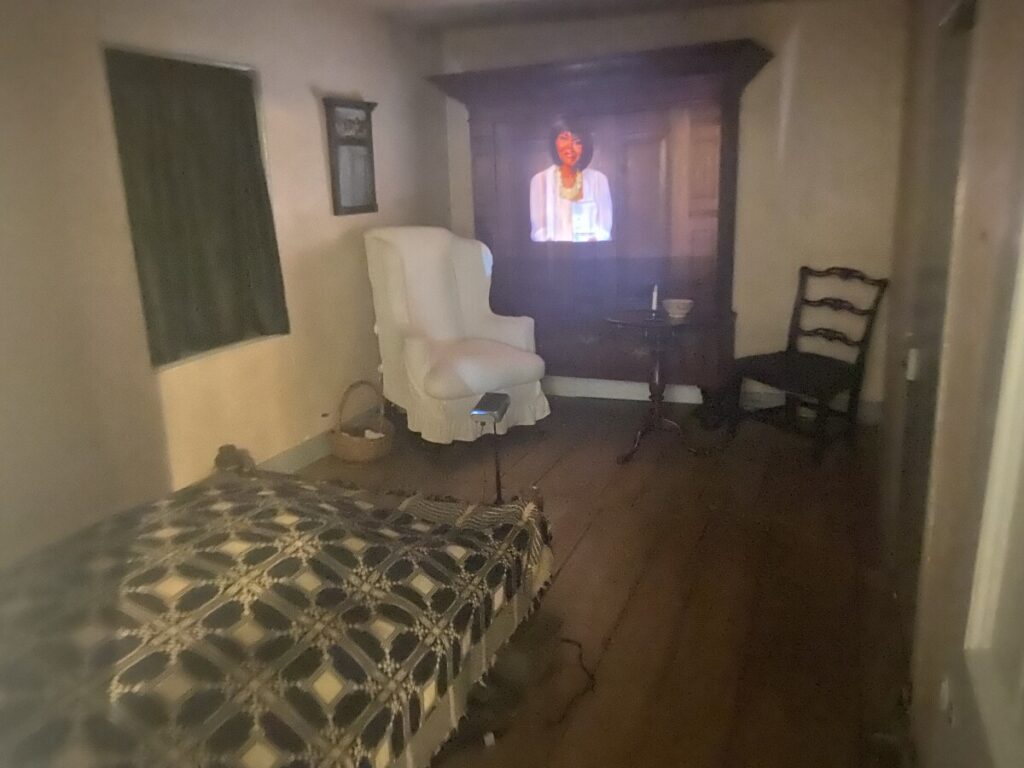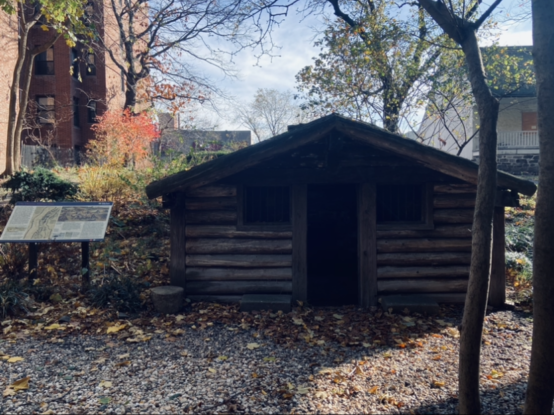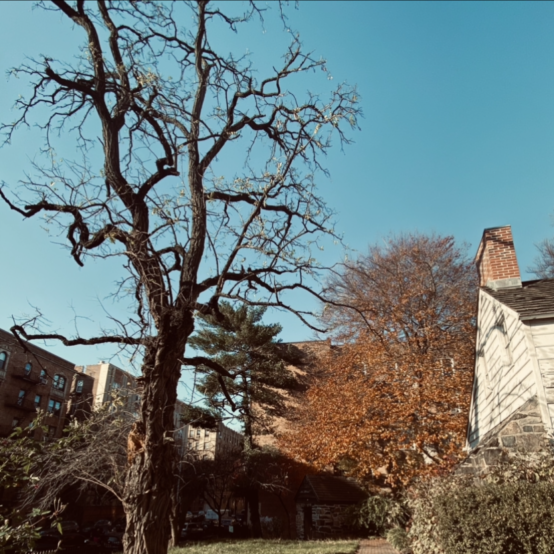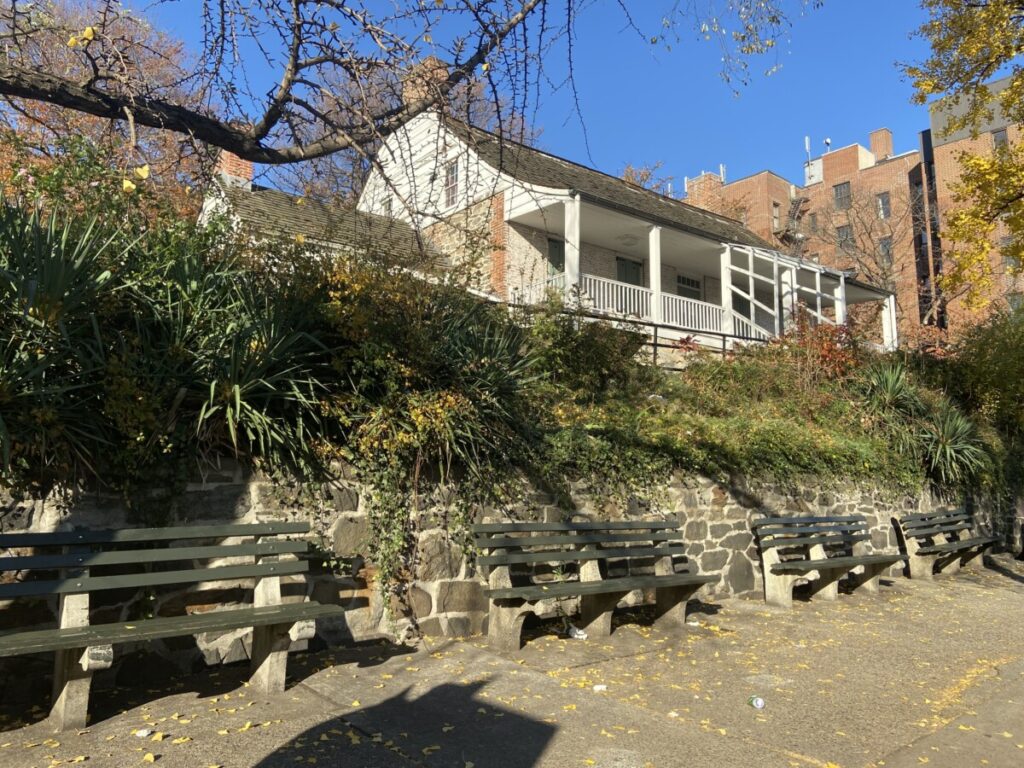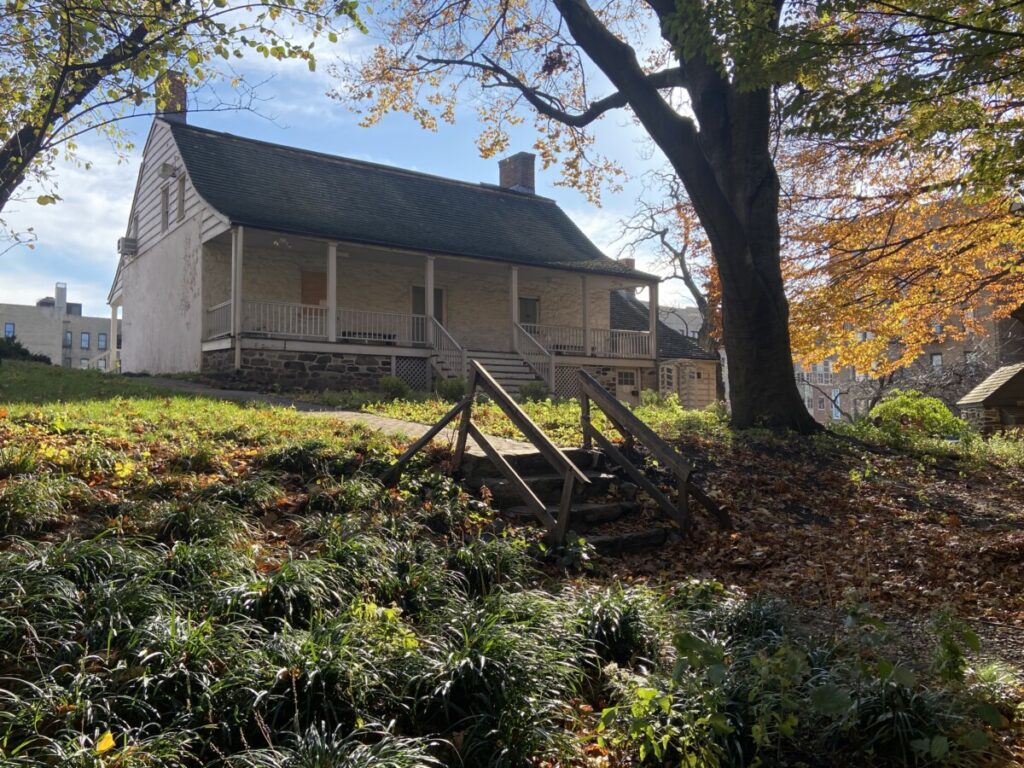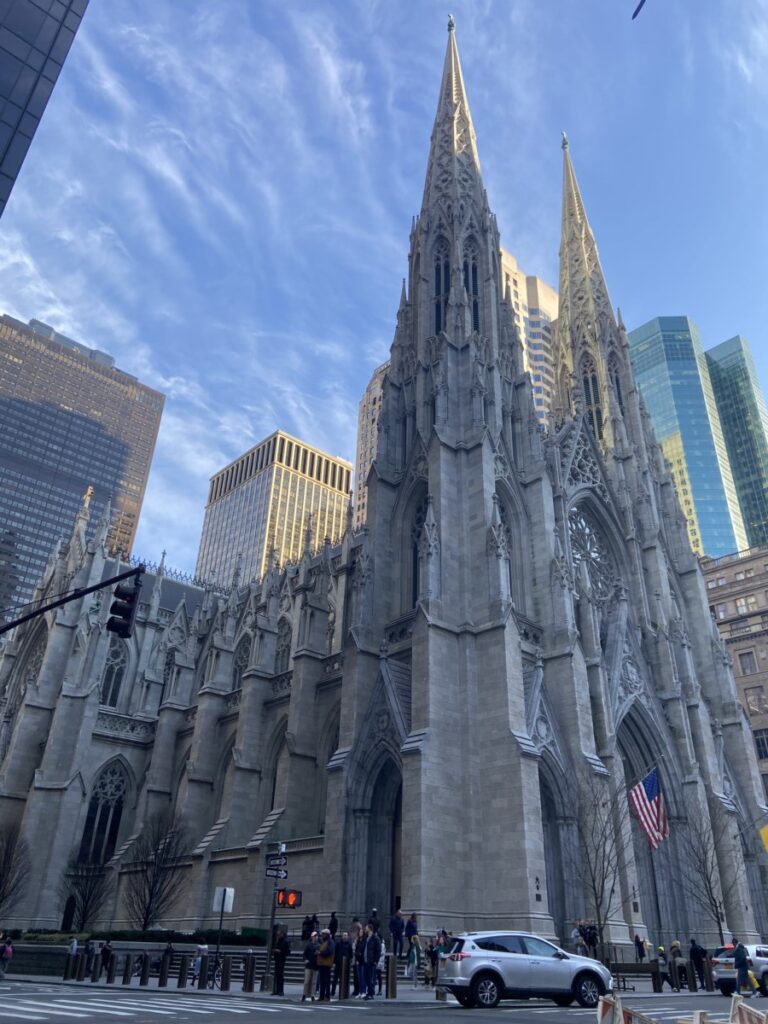Yarlin Peralta
ENG 3407
Professor Scanlan
December 14, 2020
Final Essay
Eleanor & The Haunting of Hill House
Throughout the story “The Haunting of Hill House” by Shirley Jackson, the main characters experience a series of events of fantastic phenomenons while staying in a house that was believed to be haunted, for an experiment. The house was “haunted” because of a line of deaths that had happened throughout the history of the house. One of the main character experiences Gothic homesickness through a fantastic phenomenon inside a “haunted house”. This paper will explain what is Gothic homesickness and fantastic in Gothic literature and how the character’s emotions and or actions were influenced/affected by the Gothic spaces/architecture of Hill House.
Hill House is considered a haunted house by the owners, the caretakers and the people from the town. Everybody lives miles away from the house, they are afraid of what might happen next or better yet who might happen next. According to Wikipedia “a haunted house or ghost house is a house or other building often perceived as being inhabited by disembodied spirits of the deceased who may have been former residents or were otherwise connected with the property. Parapsychologists often attribute haunting to the spirits of the dead who have suffered from violent or tragic events in the building’s past such as murder, accidental death, or suicide.” This is relevant because before Eleanor entered Hill House Mr. Dudley, the caretaker tried to warn her about Hill House and try to scare her off the house but Eleanor insisted and got inside the house. Then once she was finally inside Mrs. Dudley also tried to warn her that if something happened after dark in Hill House nobody was going to be able to hear them and more importantly nobody was going to go inside the house after dark, or as she would say “I leave before dark comes”(chapter 2, pg.16).
Gothic homesickness is a literary element that is very present in Eleanor’s character. She gets homesick by a home that is not a home, Hill House is unhomely and by a group of strangers that she doesn’t quiet know much about. Gothic homesickness is “the feeling of missing something related to home that is now gone. Gothic homesickness, however, is more extreme than homesickness in that the such feelings and decisions about home may destroy the actual home. What this means is that the negativity surrounding the home may activate violent—perhaps even deadly—decisions to destroy.” Another literary element that is shown in the story is fantastic, Eleanor experiences a series of fantastic phenomenon after being in Hill House for a few days. Eleanor experiences supernatural events such as hearing voices or weird sounds, and feeling the presence of “spirits”. Todorov’s states that ‘“The fantastic requires the fulfillment of three conditions. First, the text must oblige the reader to consider the world of the characters as a world of living persons and to hesitate between a natural and a supernatural explanation of the events described” (32).’
One day, Eleanor told Theo that once they are out of Hill House she was going to move in with her, Theo was not very fund of the idea. However, Eleanor felt like they were very close, close enough to move in with her after the experiment with Dr. Montague and Luke. According to the text,
‘“I’ve been wondering.”
“Well?” Theodora smiled a little. “You look so serious,” she said. “Are you coming to some great decision?”
“Yes,” Eleanor said, deciding. “About what I’m going to do afterwards. After we all leave Hill House.”
“Well?
“I’m coming with you,” Eleanor said.
“Coming where with me?”
“Back with you, back home. I”—and Eleanor smiled wryly— “am going to follow you home.”
Theodora stared. “Why?” she asked blankly.”
“I never had anyone to care about,” Eleanor said, wondering where she had heard someone say something like this before. “I want to be someplace where I belong.”
“I am not in the habit of taking home stray cats,” Theodora said lightly” (chapter 8, pg. 100).
This important because Eleanor and Theo form a sisterly like bond. For example, they would paint each other nails, exchange clothes and hang out together. Therefore, Eleanor believes that it is okay to go live with Theo even though they are practically total strangers; she got used to her, and didn’t want to be away from her. This shows that Eleanor is not only homesick by a home but by people that she feels that appreciate her and that are family like, Eleanor wants to belong. In addition, Eleanor had a very unfortunate connection with the house and Dr. Montague decided she had to leave Hill House. However, Eleanor didn’t want to leave Hill House even though she knew it was not a place suitable for a human to live in; she wanted to stay there. Jackson states that,
‘“Why,” the doctor said, “home, of course,” and Theodora said,
“Nell, your own little place, your own apartment, where all your things are,” and Eleanor laughed.
“I haven’t any apartment,” she said to Theodora. “I made it up. I sleep on a cot at my sister’s, in the baby’s room. I haven’t any home, no place at all. And I can’t go back to my sister’s because I stole her car.” She laughed, hearing her own words, so inadequate and so unutterably sad. “I haven’t any home,” she said again, and regarded them hopefully. “No home. Everything in all the world that belongs to me is in a carton in the back of my car. That’s all I have, some books and things I had when I was a little girl, and a watch my mother gave me. So you see there’s no place you can send me”’ (chapter 9, pg.116).
This is relevant because it really shows Gothic homesickness at its finest. Eleanor wants to stay at Hill House with her “friends” even after knowing and experiencing supernatural events, even after knowing the history of Hill House. The story about Hill House says that almost everybody that have lived in the house ends up dead and yet Eleanor sees passed that and wants to be in Hill House. She doesn’t have a home and Hill House is probably the closest thing to a home she has had in years.
The night before Dr. Montague decides to tell Eleanor to go back home Eleanor believes that her mom was inside the house. That night Eleanor couldn’t sleep, so she went down the stairs to the library to get a book to read; but she felt an “spirit” and believed it was her mother, she ran all around the house following and looking for her “mother”, her deceased mother whom she took care of for eleven years. According to chapter 9,
“… But I can’t go in there; I’m not allowed in there—and recoiled in the doorway before the odor of decay, which nauseated her. “Mother,” she said aloud, and stepped quickly back. “Come along,” a voice answered distinctly upstairs, and Eleanor turned, eager, and hurried to the staircase.
“Mother?” she said softly, and then again, “Mother?” A little soft laugh floated down to her, and she ran, breathless, up the stairs and stopped at the top, looking to right and left along the hallway at the closed doors.
“You’re here somewhere,” she said, and down the hall the little echo went, slipping in a whisper on the tiny currents of air.
“Somewhere,” it said. “Somewhere”’(chapter 9, pgs. 110-111).
This illustrates that Eleanor was facing a fantastic phenomenon, Hill House was affecting her in a deeper level. She was talking and connecting in a more personal level with the house’s “spirits”, since she believed her mom was inside Hill House and talking with her when her mother its actually dead. Hill House got insides Eleanor’s head and make her run around the house and up and down the stair, until everybody wakes up and realize that she is influenced/possessed by the “spirits” of the house. Moreover, Eleanor becomes so attached to the house that the house could feed onto her emotions of homesickness and didn’t want to let her go neither, so it decided (the house) to play with her head once again to convince her to stay, but it (the house) knew she couldn’t stay therefore it killed her so that she couldn’t go anywhere. According to the text,
“With what she perceived as quick cleverness she pressed her foot down hard on the accelerator; they can’t run fast enough to catch me this time, she thought, but by now they must be beginning to realize; I wonder who notices first? Luke, almost certainly. I can hear them calling now, she thought, and the little footsteps running through Hill House and the soft sound of the hills pressing closer. I am really doing it, she thought, turning the wheel to send the car directly at the great tree at the curve of the driveway, I am really doing it, I am doing this all by myself, now, at last; this is me, I am really really really doing it by myself.
In the unending, crashing second before the car hurled into the tree she thought clearly, Why am I doing this? Why am I doing this? Why don’t they stop me?” (chapter 9, pg. 119).
This is important because it shows how badly Eleanor was affected by the supernatural experiences and the empty feeling of homesickness. The house got into her head and made her to make drastic decisions. So drastic that she drove herself into a tree and ended up dying. She didn’t want to leave because in a way Hill House was a home for her, even though Hill couldn’t be a home for any human; Hill House was inhumane, it was evil.
Lastly, Eleanor gets homesick by the one thing she shouldn’t have gotten homesick for. Eleanor got Gothic homesickness for a haunted house, for Hill House which cause her death at the end of the story; Hill House destroyed her not only psychologically but also physically. After taking care of her sick mother for eleven years, and then the only reason she stops taking care of her mom is because she dies. Her mom dies, and then she moves in with her sister in a home where she doesn’t really belong because there is not even a place for her, she sleeps in the living room and or in the baby room. The point is she found comfort in Hill House because it was a place where she finally found people that took care of her instead of her taking care of them; it was a place where she had her own space. In hill house she was appreciated by her “friends” which she eventually kind of consider them family because it was the closest thing she had to a home and to a family. The Gothic space of Hill House affected her so much that she only made it out of there only for a few minutes, she died or like the story says she “hurled into a tree” and eventually die. Hill House killed her!
Works cited:
Jackson, Shirley. “The Haunting of Hill House”. 1959.
Prof. Scanlan. “Definition of Homesickness and Gothic Homesickness”. 2020.
Translated by Richard Howard. “From Tzvetan Todorov’s The Fantastic: A Structural Approach to a Literary Genre”. Ithaca, Cornell UP, 1975.
“Haunted House.” Wikipedia, Wikimedia Foundation, 3 Dec. 2020, en.wikipedia.org/wiki/Haunted_house.
